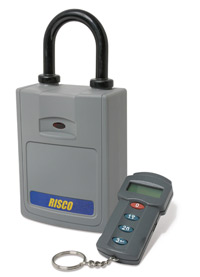
Sales figures quoted above are for single family residences and do not include multi-family residences.
You may find that information on the right side of this page or you can follow me on Twitter, I’m odelljohn.

Sales figures quoted above are for single family residences and do not include multi-family residences.
You may find that information on the right side of this page or you can follow me on Twitter, I’m odelljohn.

Residential sales for the period January 1, 2009 to February 28, 2009 compared to the same period last year remained about the same. Eighty homes were sold this year compared to eighty six homes last year. However, average sales prices dropped 12% or about $48,500 per home. The average sale price this two month period was $340,866 compared to the same period last year’s average of $389,350.
Days on the market increased to 158 days compared to 128 days on the market for last year or about 19 percent longer on the marked before they sold.
That’s the long and short of it, but I did an analysis of the entire year of 2008. Sales figures for residential home prices in Nevada County indicate a 12% decline in value. Prices of residential homes in Nevada County are still higher than our surrounding neighbors and higher than the State average of $281,100 versus our average of $340,866.
A report from the California Association of Realtors states that “The median price of an existing, single-family detached home in California during December 2008 was $281,100, a 41.5 percent decrease from the revised $480,820 median for December 2007, C.A.R. reported. The December 2008 median price fell 2 percent compared with November’s revised $286,850 median price.
“Median prices continued to decline in December, and based on preliminary calculations, the statewide annual median price declined 38 percent for all of 2008 compared with 2007,” said C.A.R. Vice President and Chief Economist Leslie Appleton-Young. “While the month-to-month decrease in December was considerably smaller than in recent months, it remains too early to determine if prices are beginning to stabilize. Many distressed sales still must work their way through the system.”

China may be having the same economic troubles that the United States is having, but groups of Chinese are coming here to buy up some bargains. A trip organized by SouFun Holdings, China’s leading property website company announced a tour to America to buy real estate. The trip was heavily oversubscribed and only 40 will make the tour to buy property in the $300,000 to $800,000 range.
According to the Timesonline: “Mo Tianquan, the chairman of Soufun.com, told The Times that his clients were hardly run-of-the-mill Chinese in a country where GDP per head is about $4,000 a year. “These people are not ordinary members of the masses,” Mr Mo said.He said: “I don’t know how much money these people have. I would say they must have at least a million dollars in cash. That’s cash they can spend any time – not investments fixed already in real estate or shares.”
Mr. Tianquan estimated that at least a third of the group were buying for their children studying in the United States. They are interested in both houses and flats, “properties near universities or high schools and bankrupt homes auctioned by the courts. Usually these houses are only half the price they used to be”
“He said: “I don’t know how much money these people have. I would say they must have at least a million dollars in cash. That’s cash they can spend any time – not investments fixed already in real estate or shares.”
One question is why the Chinese would want to buy in the United States when the yuan is seen as likely to rise further in the long term, thus effectively harming the value of their American property.
Mr Mo said that this was a minor consideration for these members of China’s tiny elite. “They don’t care if the dollar will rise or not,” he said. “They are using pocket money to buy houses. To spend these sums has no impact on their way of life. If it makes a profit, and how much, is not a consideration.”
There is one final hurdle: it is not clear how even the super-rich will get their assets out of China, which limits the amount a Chinese person can take out each year to $50,000.”
Its bargain time in the United State again. Some of you may remember the down turn we had in real estate in the 1980’s The Japanese came over here and bought a huge amount of real estate..They poured nearly $300 billion into high-profile properties like Rockefeller Center in New York and the Pebble Beach Golf Club in California. Do you have a feeling that history is repeating itself? I remember the doom and gloom of those days, everyone thought it was the end of the real estate market. We’ve had several booms and busts in the real estate market since then. The real estate market, like the stock market, will always have it’s up and downs.

According to Forbes Warren Buffett is number two in the line up of the 400 richest Americans. If you believe in his wisdom, Mr. Buffett says now is the time to buy! (Mr. Buffett is worth 61 billion dollars)
I’ve read his simple rule for buying of stocks, companies and real estate, “Be fearful when others are greedy, and be greedy when others are fearful.”
He admits that fear now is widespread, gripping even seasoned investors. And that fear makes us sell stocks and hold on to cash, or hold off buying anything.
Then he observed, “In waiting for the comfort of good news, they are ignoring the great hockey player, Wayne Gretzky’s advice: ‘I skate to where the puck is going to be, not to where it has been.'”
Continuing with some other comments by Mr. Buffett, this is part of the text of an opinion piece written by Warren Buffett and published in the New York Times on Friday, October 17, 2008.
“Today people who hold cash equivalents feel comfortable. They shouldn’t. They have opted for a terrible long-term asset, one that pays virtually nothing and is certain to depreciate in value. Indeed, the policies that government will follow in its efforts to alleviate the current crisis will probably prove inflationary and therefore accelerate declines in the real value of cash accounts”
So while everyone is selling, Warren Buffett is buying. So where are you, are you sitting on your cash, waiting for the market to settle down? Remember the greed of some investors when the market was soaring, they were buying real estate for whatever price the seller was asking. They were buying on the greed side of real estate and many lost their total investment. So who is buying during this fear cycle? Read my previous blog , For Some, Foreclosed Homes Equals Gold.
So if you have the money to invest, now is the time to buy, according to Warren Buffett.

You might have heard of the real estate agent in Hillsboro, Oregon who used his lock box key to enter into homes and burglarize them. A homeowner returning from a business trip, walked into his house to find Michael Troy Messmer drinking a White Russian. It seemed obvious that Messmer had been in his liquor cabinet.
The homeowner asked Messmer what he was doing and Messmer replys, “I’m a Realtor” with that, him and his girlfriend walk out with a box full of the homeowner’s personal property worth about $260. That was on February 1.
On February 5, this genius was found to have taken some minor items, toiletry and liqueur from a Cornelius home. The items were worth about $250. In both cases, he used his lock box key to enter the homes.
Of course Messner was caught in short order. This is because every time a Realtor uses his lock box key to open a lock box, (where the key to enter the house is located), a code is entered into the lock box leaving behind the agent’s name and the time that the house was entered. It’s too bad that in every profession there is always somebody who is dishonest. Not only was this guy dishonest, but I think he makes the grade for the dumbest criminal of the year.
I don’t know if they do a background check on real estate agents in Oregon, but in California every licensed real estate agent and broker has to have background check prior to obtaining their license, giving assurances that people with criminal records do not get a license.

If Angel and I could talk to each other, the conversation might go something like this.
Angel to me, why are people so upset because the government might save their neighbors house who is facing foreclosure. After all, they’re saying I make my payments on time, I don’t want or need a government handout, why should they get one?
Well, Angel, it’s not that simple. I remember when I took a law class, the instructor (who was an attorney) said, there is right and wrong, then there’s the law. Now I say, in these times there is right and wrong and then there is real estate. Real estate needs help now, and it may not be exactly the right or wrong way to do it, but something has to be done.
Helping our neighbor to avoid foreclosure helps all of us. It keeps housing inventory from increasing, it helps prevent our home values from dropping and it keeps the neighborhood from deteriorating. There are vast neighborhoods that have just fallen apart, one home after another being foreclose on, vandals tearing the house apart, or homeowners selling parts of their home before they move. (See my previous blog “Rip off a House, Go to Jail”)
Now some people have further said, what kind of an example are we giving our children? Are we teaching them that if they get in trouble the government will bail them out. I don’t think so; I think you need to educate your children as to the realities of the times. Sometimes, government just has to get involved for the good of the Nation.
What do you think Angel? I think that makes a lot of sense, can I have a cookie now?

President Obama will be in Phoenix today, to unveil his “Homeowner Affordability and Stability Plan” to help bring relief to homeowners and bring some order to the housing market.
A portion of his blog reads:
“The President’s strategy for economic recovery is a stool with several legs, as he’s said, and one of them is solving the foreclosure crisis.
“We must stem the spread of foreclosures and falling home values for all Americans, and do everything we can to help responsible homeowners stay in their homes,” he said yesterday as he signed the American Recovery and Reinvestment Act into law
To read the full text and explanation of what is proposed read the White House Blog at The Briefing Room

I’m comparing the month of January 2008 to the month of January 2009. It is not really a good comparison in some ways, as a large sale can skew the results. But it is a brief snap shot of what’s happening. As the year goes, by, I’ll start comparing the combined months of the year. For example, the next blog will be a comparison of January and February and so on.
Residential sales for the month of January 2009 increased five percent over January 2008. The average sales price declined eighteen percent from an average sales price of $449,358 to $370,351 from 2008 to 2009. However, in January of 2008 there was one sale of $1,950,000 which really skews the average sales price. Taking that out of the equation, the average sales price for January 2008 drops to an average sales price of $372,155 which is about what the sales price is this year.
Average days on the market remained almost the same, 140 days in 2008 compared to 138 days in 2009. To make a long story short, sales in January of this year compared to sales in January of last year are about the same.
Let’s see how the rest of the year goes. I believe the market is picking up and I expect there is going to be a lot of help from the Federal Government in the coming months. A lot of investors are jumping into the market realizing that this is a great time to buy.

Well, the latest news from the California Association of REALTORS® (C.A.R.) states that sales in December of 2008 increased 84.9 percent compared with the same period last year. On the other hand, median home prices fell 41.5 percent during the same period. The median price in December was $281,100 compared to $480,820 in December 2007 according to C.A.R. By the way, in my previous blog I stated that DataQuick’s figures showed a 48 percent increase in sales from a year ago. Maybe we should average the two figures! I think what C.A.R. is comparing is the month of December 2007 to the month of December 2008. You have to be careful to about news stories, no?
“Sales have continued to be strong, exceeding 500,000 units for the fourth consecutive month and year-to-date sales are nearly 27percent above last year” said C.A.R. President James Liptak. (More percentages)
Several things have helped to bring buyers into the market. Declining interest rates have dropped along with declining home prices. In addition home building has dropped to a 17 year low which, while it hurts the economy, it also slows the flow of new homes into the market. First time home buyers are now able to afford a home. Investors are flooding into the market place, knowing that this is a buying opportunity of a lifetime.
By the way, I ranted in an earlier blog about banks being bailed out and how they used the money to help their own bottom line instead of you and I. Here’s an example of what we helped bail out with our money. Bank of America bought Merrill Lynch because it seemed to the bank to be a way to expand their holdings. John Thain was CEO of Merrill Lynch at that time and was allowed to continue as a one of Bank of America’s managers He has since been fired when B of A found out that he had given billions (not millions) of dollars in bonuses to Merrill Lynch employees in his last days as CEO there, while his company was going under and had to be rescued.
You know of course, that the government has given Bank of America 20 billion dollars in rescue monies and another 118 billion is sitting there, if they need it. They need the money because of their acquisitions of FleetBoston Financial, Countrywide and Merrill Lynch. So continuing with the saga of John Thain, John then spent 1.2 million dollars remodeling his office, including $1,450 for a parchment wastebasket. So this is where part of our rescue monies have gone, to pay for a $1,450 parchment waste basket! Read the full story of John Thain at MSNBC

In a flash of good news in an otherwise depressing economy, residential sales have increased locally and in most of the State to forty eight percent over this time last year. Although there doesn’t seem to be an end to foreclosures, it has resulted in making home purchases attractive to investors and affordable to first time home buyers.
An article from the Appealdemocrat.com states in part:
“Foreclosures and a three-year price plunge continue to drive a rise in home sales in the Mid-Valley and elsewhere in recession-wracked California.
Yuba and Sutter counties more than doubled the number of freestanding houses sold in December compared to a year earlier, according to a report Wednesday from MDA DataQuick of San Diego.
*****
A glut of foreclosed homes has slashed median home prices in Yuba-Sutter and throughout the Central Valley, as defaults have mounted on high-risk mortgage loans that linked artificially low early payments to much larger ones later. DataQuick reported an 48 percent jump in home sales across California from a year earlier, to 38,000 houses and condominiums”